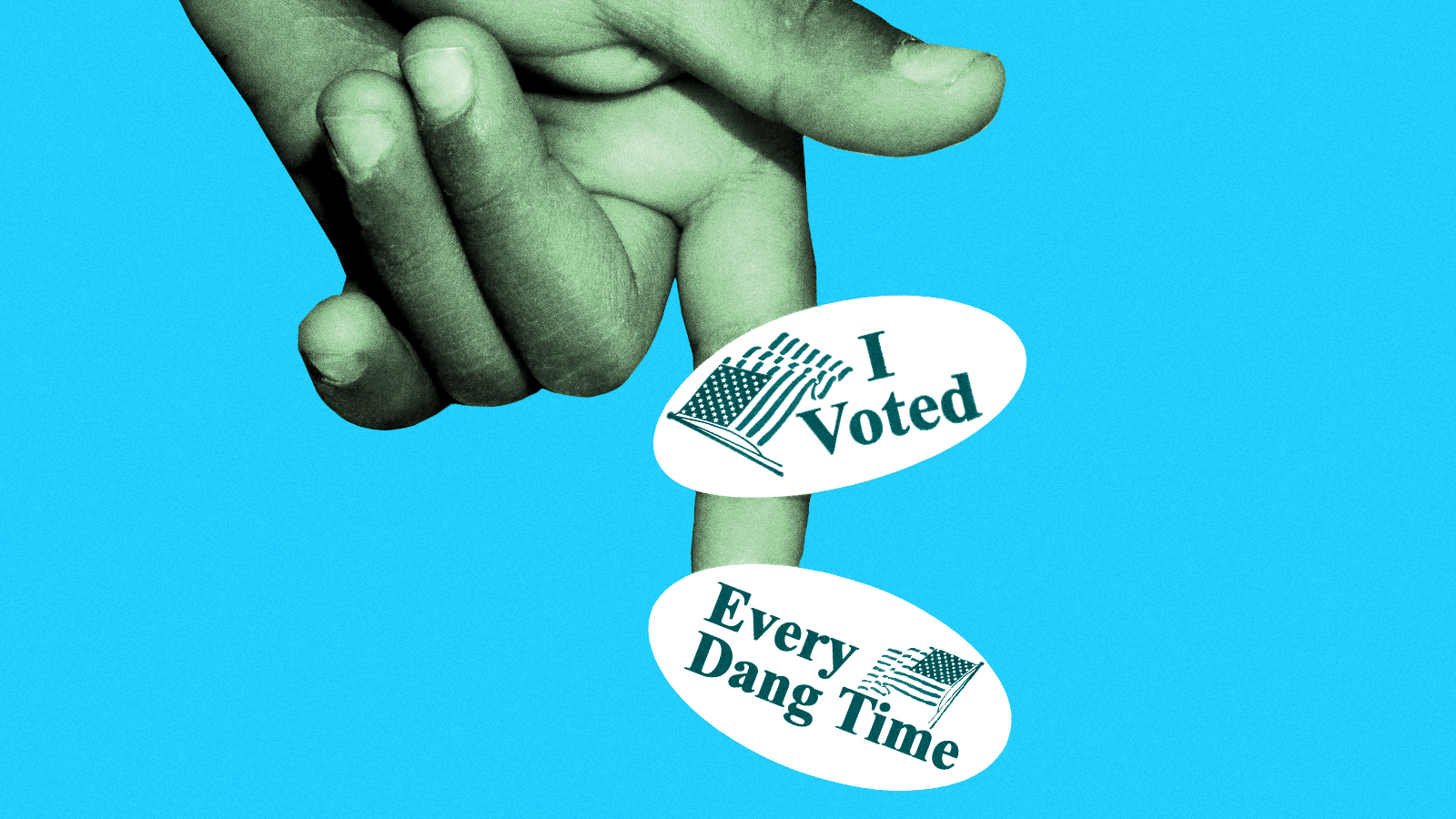You’ve likely heard a thousand and twenty times that voting in local and midterm elections is just as important as casting a ballot for president.
But, with all due respect, statistics clearly show that you, or at least most of your friends, are not doing it. Especially not at the local level. Less than one out of every five registered voters shows up for municipal elections.
And that’s crazy, because cities and states are responsible for many of the government functions that directly impact your life — like public transit, clean energy, and affordable housing, for instance. “If you care about green action, you need to be involved with municipal elections,” says Jen Tolentino, the director of policy and civic tech at Rock The Vote.
Voter turnout
Who’s voting?
The outcomes of local races are sometimes decided by a few dozen votes. And because the federal government probably won’t take action on anything remotely climate- or environment-related for the next four years (except to in a bad way), any environmental progress will happen at the local and state level. Your city council and mayor’s office just got even more important.
And the people you vote into those offices will be future candidates for governor, senator, or even the White House. “How do you build a political bench who will represent who we are as a generation?” Tolentino asks. “If you’re interested in building a political system with options who you do want to vote for, you need to focus on those running for local offices.”
Convinced? To actually get to the polling booth, you need to be able to answer these questions:
- Did you move recently? You might not be registered anymore! Your registration definitely doesn’t follow you from state to state, and it probably doesn’t follow you from address to address. Find your local election office here. (Some even let you register online! None of them make you register by combat!)
- Do you know what the voting requirements are in your state? Like, what do you have to bring to your polling place? Guess what — we’ve got 50 states, and each one has its own wacky rules. New voter identification laws are proliferating across the country, so learn them (this is a good resource from the National Conference of State Legislatures). Know your voting rights — and how to defend those of a fellow voter at your local polling place.
- Do you know where to vote? Your polling place for local elections might be different from where you voted in the federal election (if you did).
- Do you know when your local elections are? The U.S. Vote Foundation has an extremely handy calendar of upcoming local elections across the country. Update your personal calendar accordingly.
Once you can answer all of these questions, make sure all your friends and neighbors can, too. (Psst — these are good skills to practice for those Big Deal 2018 midterms.)
Voting isn’t much good if you aren’t informed. These are our favorite national resources for learning about local election issues:
Ballotpedia: Don’t be turned off by the 2006-era web design: This is a pretty comprehensive, nonpartisan compendium of information about local elections.
Vote Smart: This resource shares candidates’ voting histories.
Rock the Vote: This website gives a rundown of registration deadlines, dates, and candidates in local elections.
But the best resources, actually, are your local publications. Give ’em some love.



